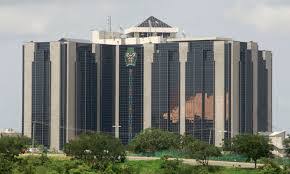Oil price yesterday hit S140 per barrel as the Russia-Ukraine war continues.
The spike followed the announcement early yesterday by the United States’ President, Joe Biden, of a ban on Russian energy imports, including oil, coal, and LNG, which has added to the pressure in oil markets. Russia is the second largest producer of crude oil in the world.
The price brings the commodity to the highest ever experienced in the last 14 years. Experts have, however, warned that if urgent steps were not taken, oil may hit the $200 per barrel mark by month end.
According to ICE Futures Europe data compiled by Bloomberg, more than 1,200 contracts were traded on last Monday for the option to buy Brent Crude future for May at $200 per barrel. As a result of active options trading in recent days, the price to buy such options has skyrocketed. For example, the $200 oil options on the May Brent futures – expiring on March 28, three days before the contract expires-saw the price for buying them surge by 152 percent to $2.39 a barrel. The price of the $150 a barrel June call option doubled, and the $180 call options surged by 110 percent, per the exchange data cited by Bloomberg.
The Chief Executive Officer, Centre for the Promotion of Private Enterprise, Dr. Muda Yusuf, had described the rising global crude oil price as a “penalty” for the economy. He explained that the development would translate to more foreign exchange and revenue earnings for the country; more profits for the oil companies operating in Nigeria and for other stakeholders in the oil sector.
However, he said, this could not be celebrated because the country’s oil sector has been grossly mismanaged, thereby making the oil boom presently being experienced a double edged sword for the country.
“The rising oil price cannot be celebrated by Nigeria because it penalises the economy and this is a paradox. The implication of this rise in oil price is that our import bill for petroleum products is going to go up; the subsidy payment on petrol is going to increase. If this trend continues this way in another six months, then Nigeria should be looking at a subsidy cost of about N5 trillion or more,” Yusuf warned.
Besides, the economist intoned that since government is keen on retaining subsidy, the profits that should have accrued from the galloping oil price will be totally consumed by subsidy. Consequently, he said, the rate of petrol smuggling will also increase because smugglers will take advantage of the subsidised product from the country to enrich their pockets.
“The differential in price between the Nigerian petrol and that of other countries will increase significantly, thereby necessitating an increased smuggling because of the higher profit margin. If smuggling increases, the amount of petrol that we claim to be consuming locally will also increase because of the relative price and the wide margin. Presently local fuel consumption is estimated at 60 million litres daily,” Yusuf said.





